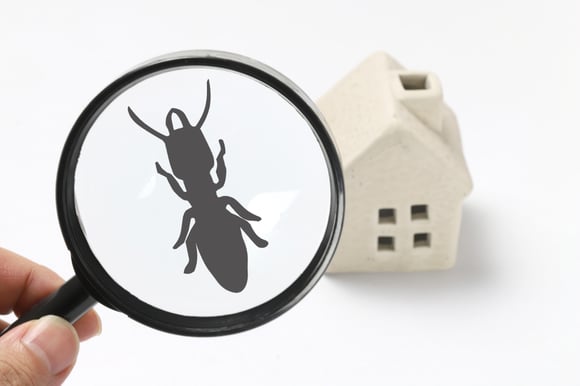Cockroaches are arguably the most resilient pest. They are fast and can run at speeds of up to 1.7 miles per hour, can survive underwater for up to 30 minutes, and even live for a week without the head.
Those features, combined with the fact that roaches can eat just about anything, lay many eggs, and are disease carriers, makes roach infestations a nightmare. According to the World Health Organization, roaches play a role in the spread of:
- Dysentery
- Diarrhea
- Leprosy
- Cholera
- Typhoid fever
- Viral diseases like Poliomyelitis
- Plague
Cockroaches are also known to cause allergic reactions such as swelling of the eyelids, itching, dermatitis, and serious respiratory conditions, as well as carry parasitic worms. Therefore, cockroaches are not only a nuisance but a significant threat to the health of your family.
In this article, you will learn more about how cockroaches behave and the most effective ways of dealing with a roach infestation.
What Are Cockroaches?
With over 4,000 different species, cockroaches are the most common insects. Fortunately, most of these species live in forests far away from human residences. They are highly resilient and adaptive creatures, and scientists suggest they can even survive a nuclear explosion.
What Conditions Do Roaches Prefer?
The key to effective pest control is to understand the pests' behavior and the conditions that allow it to thrive. For roaches, the ideal environment is warm and humid. They are nocturnal insects that come out to feed at night and scamper when lights are turned on.
Being thigmotropic (love feeling something solid touch their bodies), they hide out in cracks and crevices. Their flat body structure allows them to fit into the tiniest of spaces.
Roaches reproduce by laying eggs. A female can produce up to 10 egg cases in her lifetime. Each egg case, referred to as ootheca, can carry 15-50 roaches. In four months, the eggs will have developed to adult roaches.
Getting Rid of Roaches?
According to scientists, not even a nuclear explosion can destroy a cockroach. Fortunately, there are far less drastic measures that you can take to beat these little critters.
-
Scan Your Home for Nesting Areas
The first step in roaches pest control is identifying all the areas in your home that roaches could be hiding. This is a job that requires a flashlight and glue strips. Begin by checking common cockroach hiding spots such as crevices in cabinets, behind refrigerators, under sinks, and cabinet and closet door corners.
Once you have identified potential hiding spots after doing a thorough flashlight inspection, place glue strips strategically. Glue strips in high traffic areas will catch the most roaches. Monitor the strips over the next seven days to know the level of treatment required in each affected area.
-
Seal Gaps Using Caulk
Roaches have a flat body structure that allows them to squeeze through small spaces. Even if your roach control method is 100% effective, your house will always have roaches if these pests have entry points from outside.
Therefore, as you combat the infestation inside the house, work to prevent future infestations. This can be achieved by using caulk to seal possible entry points such as cracks on walls and spaces between tiles. For window seals and doors, you can use weather stripping.
-
Use Gel Bait
Once you’ve made your house inaccessible to roaches on the outside, it’s time to eradicate the infestation inside. An effective way of achieving this is by using gel bait. Apply the gel on all the problematic areas such as cracks and baseboards.
If you do not want dead roaches lying all over your house, set up bait stations to attract roaches. Once a cockroach feeds on the poison, it goes back to its hiding place and dies. Other roaches then feed on it, thus ingesting the poison.
-
Uses Boric Acid Powder for Maximum Effect
When applied correctly, boric acid is one of the most effective methods of dealing with a roach infestation. Boric acid is a combination of water and boron, and it is a naturally occurring compound found in fruits.
Though the name may suggest some level of danger, boric acid is relatively harmless to humans and pets. However, it is highly toxic to cockroaches. Apply the powder in areas where cockroaches pass through. Do so sparingly as roaches will avoid the area if you apply too much.
Once a cockroach passes over that area, the boric acid will stick to their body. They will later ingest the acid as they preen. This method is effective as other roaches will feed on the dead roach and also ingest the acid.
Why You Should Consider Calling an Exterminator
Pest prevention is the best way of preventing a cockroach infestation is easier than getting rid of one. Though you can use these methods to great effect, you’re better off leaving nothing to chance and letting a professional handle your roach problem.








